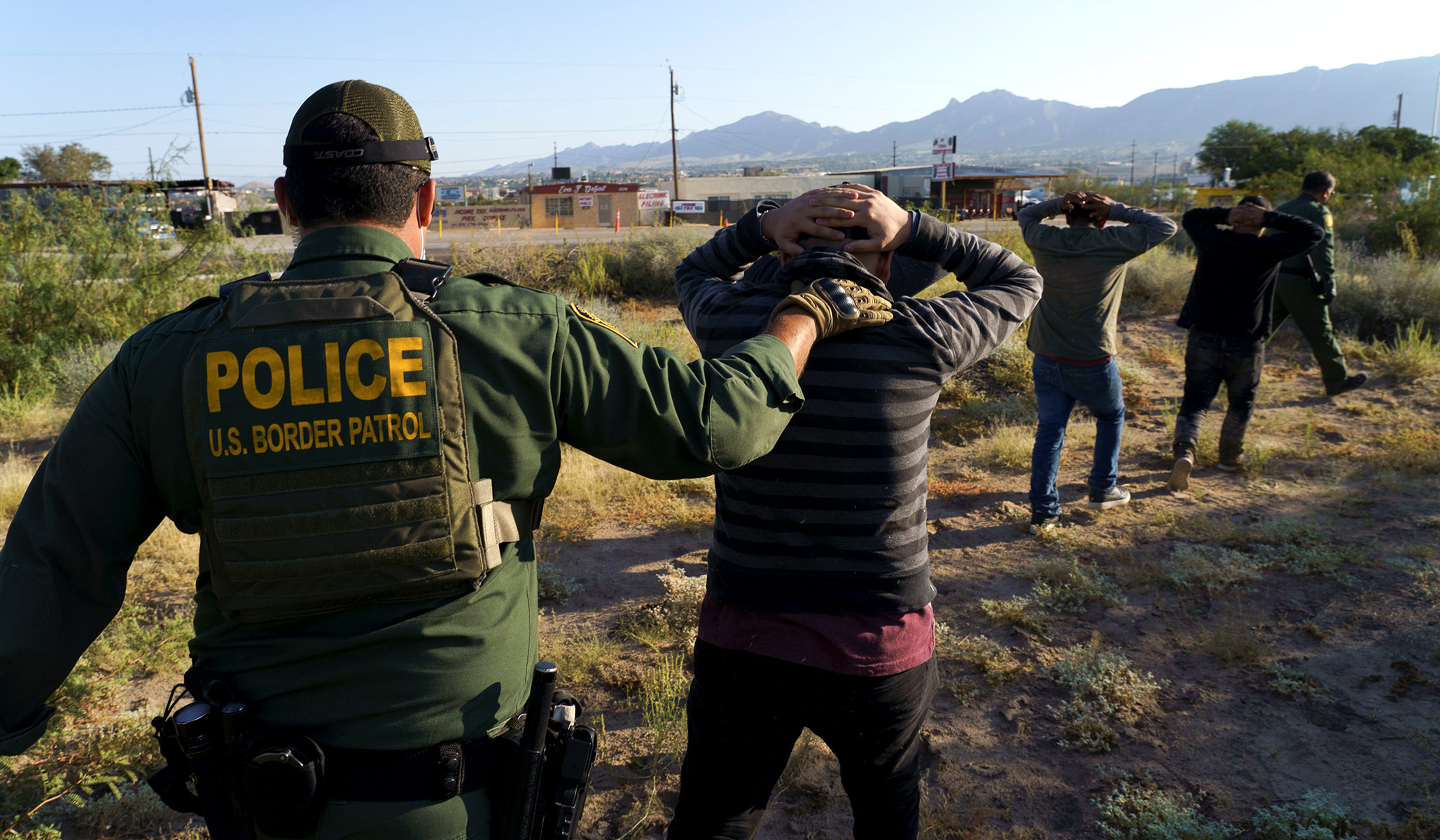The Ninth Circuit today, in United States v. Hansen, ruled that a federal law against encouraging illegal immigration violates the First Amendment. The opinion was written by Judge Ronald Gould, a Clinton appointee, and joined by another Clinton appointee and by a senior judge from the Court of International Trade appointed by Ronald Reagan. A previous Ninth Circuit panel had tried to throw out the same statute without even being asked by the parties, a maneuver that got slapped down by a unanimous Supreme Court in 2020 in United States v. Sineneng-Smith, an opinion by Justice Ruth Bader Ginsburg that warned courts not to “sally forth each day looking for wrongs to right” instead of hearing arguments brought to them by litigants.
The court acknowledged that Congress could prohibit encouraging illegal immigration for the defendant’s financial benefit, which was the case here (the defendant’s organization brought in $1.8 million from at least 471 people), but held that the statute was overbroad because it would criminalize a substantial amount of otherwise-legal speech. The statute in question makes it a crime for “any person who . . . encourages or induces an alien to come to, enter, or reside in the United States, knowing or in reckless disregard of the fact that such coming to, entry, or residence is or will be in violation of law.” The statute provides punishments for every alien who is induced or encouraged, with enhanced punishments for each case “in which the offense was done for the purpose of commercial advantage or private financial gain.” The court noted that the prohibition included encouraging illegal immigrants to commit civil violations of the law, not just criminal violations. The overbreadth doctrine remains a subject of some dispute, and one may question whether its “strong medicine” should be applied when the defendant is being charged only under the prong of the statute that punishes encouragement of crimes for the defendant’s financial benefit, which is a significant limitation.
The court offered examples that it considered to “a substantial amount of protected speech”:
Encouraging an undocumented immigrant to take shelter during a natural disaster, advising an undocumented immigrant about available social services, telling a tourist that she is unlikely to face serious consequences if she overstays her tourist visa, or providing certain legal advice to undocumented immigrants . . .
Subsection (iv) “create[s] a criminal prohibition of alarming breadth” comparable to other statutory provisions the Supreme Court has held are facially overbroad…For example, in [United States v. Stevens (2010)] the Court held that a statute prohibiting animal cruelty which encompassed depictions of hunting was facially overbroad . . . while in [Ashcroft v. Free Speech Coal., (2002)] the Court held that a statute prohibiting the depiction of child pornography which encompassed movie adaptions of Romeo and Juliet and the movie “American Beauty” was facially overbroad.
This is an unpersuasive analogy. Depictions of hunting do not involve breaking federal law. Neither would showing movie adaptations of Shakespeare. Every application of the statute here involves telling someone to do something the defendant knows to be illegal under federal law, or recklessly disregards that fact (an intent standard that is common enough with federal crimes). Of course, telling someone to “take shelter during a natural disaster” might be morally justifiable, and might lead a prosecutor or a judge to go easy on you, but if the law makes no exception for the natural disaster, it is still telling someone to violate the law. Same with “advising an undocumented immigrant about available social services” if the person is being encouraged to enter or stay in the U.S. illegally and the defendant knows or recklessly disregards that. Same with telling a tourist to overstay a visa. The court references “providing certain legal advice to undocumented immigrants,” but that is a dodge: Lawyers tell people all the time whether their conduct will violate the law or not, and what the odds are of them being punished for it. The overwhelming majority of situations where this would apply to legal advice would not be criminalized.
Now, one can certainly argue that the statute here is drawn more broadly than it should be, but that is not the First Amendment question. It is telling that the court could not find a single example of conduct under the statute that does not involve advising someone to break the law. While free-speech protections are broad for generalized encouragements that can persuade people to commit crimes — the standard for incitement is quite high — the law has traditionally drawn a line at one-on-one encouragement of specific people to engage in specific criminal activity. It is hard to imagine the same court applying the same analysis to encouragement of some crime that was less sympathetic to these judges.
